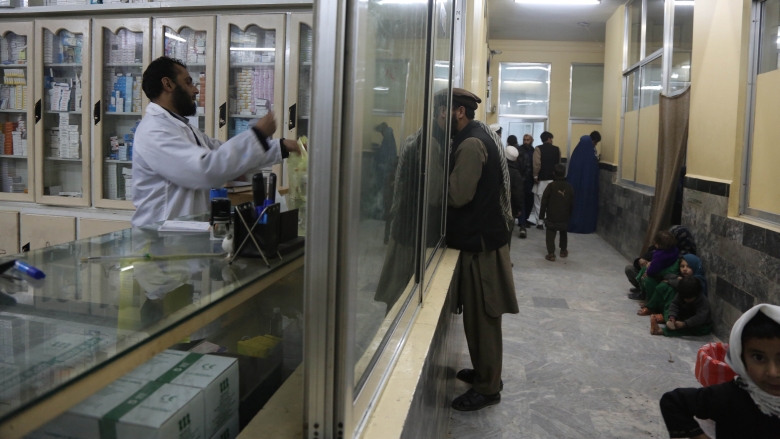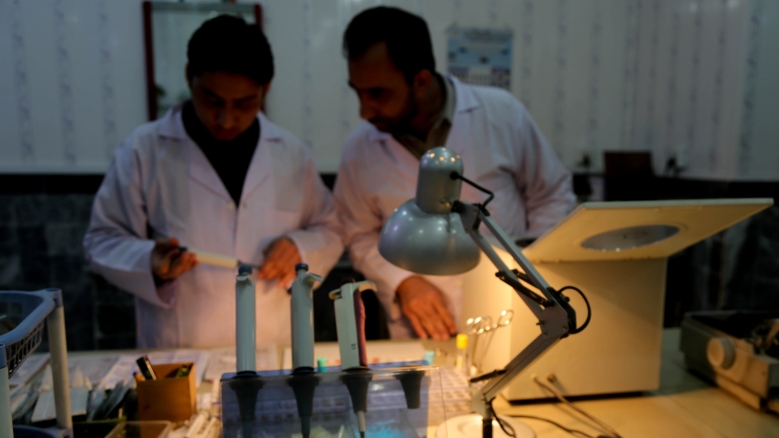JALALABAD CITY, Nangarhar Province – Kamaluddin, 24, has been suffering from stomach illness for years and had been to Pakistan for treatment. Now a patient at the Baidara Hospital in Jalalabad City, he is delighted to see treatment possibilities in his own country.
“I have been to Peshawar in Pakistan several times for treatment,” Kamal says. “The travel and treatment were expensive. I am glad to be able to receive care at a local hospital in Nangarhar Province. Since I have been here, everything has gone well so far.”
Baidara, a private hospital in Jalalabad, the capital of Nangarhar Province, was transformed in 2014 following training and financial support received as a result of the assistance through the Afghanistan New Market Development Project (ANMDP), operated by the Ministry of Commerce and Industries with funding support from the World Bank.
The ANMDP, launched in May 2011, is a cost-sharing program to support Afghan Small & Medium Enterprises (SMEs) and Business Associations with access to Business Development Services (BDS) to enhance their productive capacity and encourage innovation through product and/or market diversification. The Facility for New Market Development (FNMD) as the core window through which firms access assistance, operates in four key cities of the country including Kabul, Mazar-e-Sharif, Jalalabad and Herat. The FNMD helps SMEs and Business Associations to gain market knowledge, improve product quality and processing technologies, and increase their presence in both domestic and export markets. Other FNMD supporting activities include a marketing and communications program, core skills building workshops and supplementary support for developing businesses plans.
“Since the ANMDP trainings, the number of daily patients we see has increased from below 50 to more than 150 patients,” says Dr. Ahmad Zahid Sadaat, the hospital’s Deputy Head Physician. “Today, we have 20 rooms where we can hospitalize 50 to 60 patients at any given time. This is all a result of the support we received from the program.”


